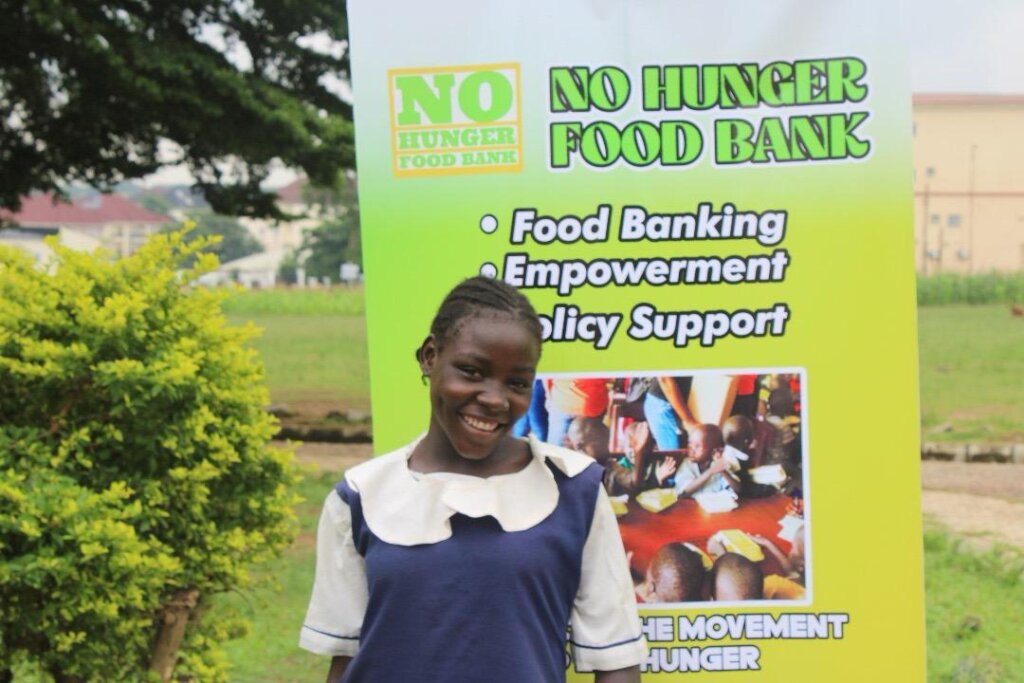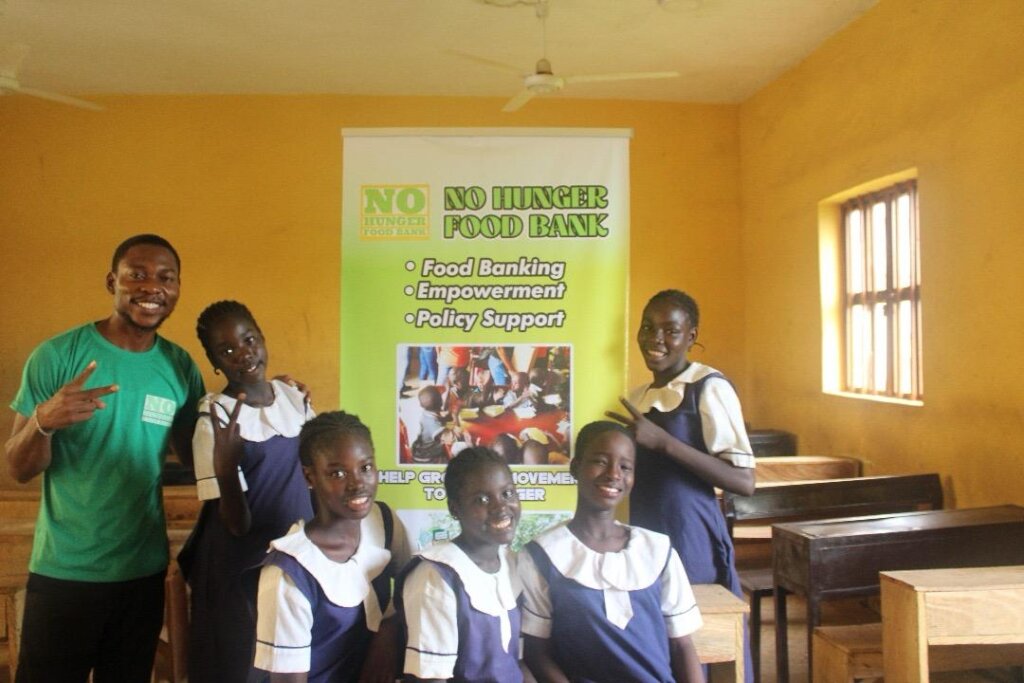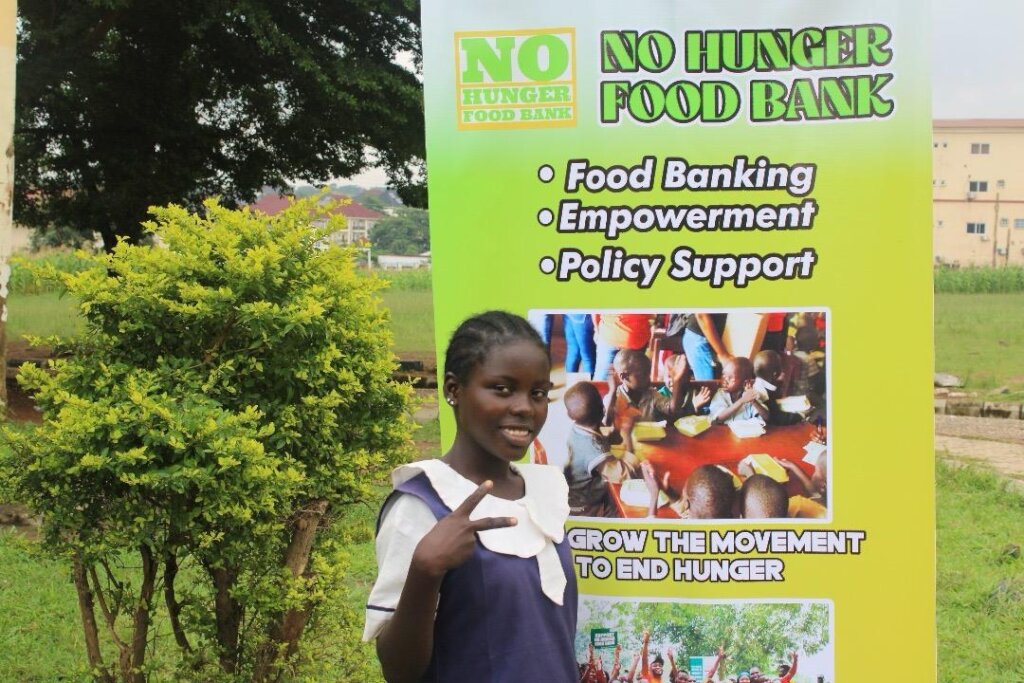Project Report
| Nov 18, 2024
Progress Report on Support 550 Displaced Girls
![]()
Executive Summary
The "Support 550 Displaced Girl Children Back To School" project initiated by the No Hunger Food Bank aims to address the nutritional and educational needs of young girls who have been displaced due to various socio-economic challenges, including conflict, natural disasters, and poverty. This report outlines the project's objectives, implementation strategies, outcomes, and future recommendations, with a particular focus on how hunger impacts educational access and long-term outcomes for these girls.
Project Objectives
- Tackle Hunger: Ensure that these girls receive regular, nutritious meals to support their physical and mental well-being, enhancing their ability to learn and stay in school.
- Provide Educational Resources: Equip 550 displaced girls with necessary school supplies, uniforms, and educational materials.
- Facilitate Enrollment: Ensure that these girls are enrolled in local schools and receive proper educational support.
- Raise Awareness: Promote the importance of education for girls in the community to combat stigma and encourage family support for schooling.
- Support Mental and Emotional Well-being: Offer counseling and mentorship programs to help girls adjust to their new environments and cope with trauma.
Project Implementation
1. Needs Assessment
A thorough needs assessment was conducted in collaboration with community leaders to identify the specific needs of these displaced girls in the community, focusing on both educational and nutritional barriers. This assessment included:
- Surveys to gauge educational barriers and hunger-related issues.
- Interviews with families and community members about food security.
- Consultation with local schools to understand their capacity to accept new students.
2. Partnerships
To achieve the project goals, No Hunger Food Bank established partnerships with:
- Local Schools: To facilitate enrollment and provide educational support.
- Community Organizations: For outreach and awareness campaigns.
- Nutrition Experts: To ensure that the meals provided are nutritious and support the girls’ health and learning capacity.
- Mental Health Professionals: To offer counseling services.
3. Resource Allocation
The project allocated resources for:
- School Supplies: Backpacks, books, stationery, and uniforms.
- Nutritious Meals: Regular meal programs to combat hunger, ensuring that the girls have the energy and focus needed for learning.
- Transportation: Assistance for girls needing help to travel to school.
4. Awareness Campaign
An awareness campaign was launched to emphasize the importance of education for girls and the impact of hunger on educational outcomes. This involved:
- Community workshops discussing the links between nutrition, education, and early marriage.
- Social media outreach highlighting the stories of these girls, affected by hunger and the benefits of education.
- Collaboration with local influencers to share messages about the necessity of supporting displaced girls.
Outcomes
1. Enrollment and Attendance
- Enrollment Success: So far, 258 displaced girls have been successfully enrolled in local schools.
- Improved Attendance: Attendance rates for these girls increased significantly, with over 70% regularly attending classes, partly due to the provision of nutritious meals that supported their health.
2. Resource Distribution
- Supplies Provided: All enrolled girls received school supplies, uniforms, and access to daily nutritious meals.
- Counseling Impact: Over 250 girls participated in counseling sessions, reporting improved emotional well-being, coping skills, and motivation to stay in school.
3. Community Engagement
- Increased Awareness: The campaign led to heightened community support for girls' education and nutrition, with more families expressing willingness to send their daughters to school instead of marrying them off early.
- Local Partnerships: Stronger relationships were formed with local schools and community leaders, enhancing ongoing support for displaced children.
Challenges
- Logistical Issues: Coordinating the distribution of supplies and meals faced delays due to transportation challenges.
- Cultural Barriers: Some families were initially hesitant to enroll their daughters in school due to traditional beliefs about gender roles and the immediate need for food security.
Recommendations
- Sustainability: Develop long-term partnerships with local schools and nutrition programs to ensure continued support for displaced girls.
- Ongoing Support Programs: Implement mentorship and tutoring programs to assist girls academically and socially, as well as to address food insecurity.
- Advocacy: Continue advocacy efforts to change cultural perceptions regarding girls’ education and the importance of addressing hunger in the community.
Conclusion
The "Support 550 Displaced Girl Children Back To School" project has made significant strides in providing educational and nutritional opportunities for vulnerable girls. By addressing the dual challenges of hunger and education, we have not only improved immediate access to schooling but also helped prevent early marriages and dropouts. Through the collaborative efforts of the No Hunger Food Bank Team, community partners, and supporters, we have fostered a supportive environment for long-term success. Moving forward, continued investment in both education and nutrition is essential to breaking the cycle of poverty and empowering future generations.
Acknowledgments
We extend our heartfelt gratitude to all donors, volunteers, and partners who made this project possible. Your commitment to supporting displaced children is invaluable and has created lasting change in our community. Together, we can ensure that every girl has the opportunity to learn and thrive.
![]()
![]()
Links:
![Share on Twitter]()
![Share on Facebook]()


